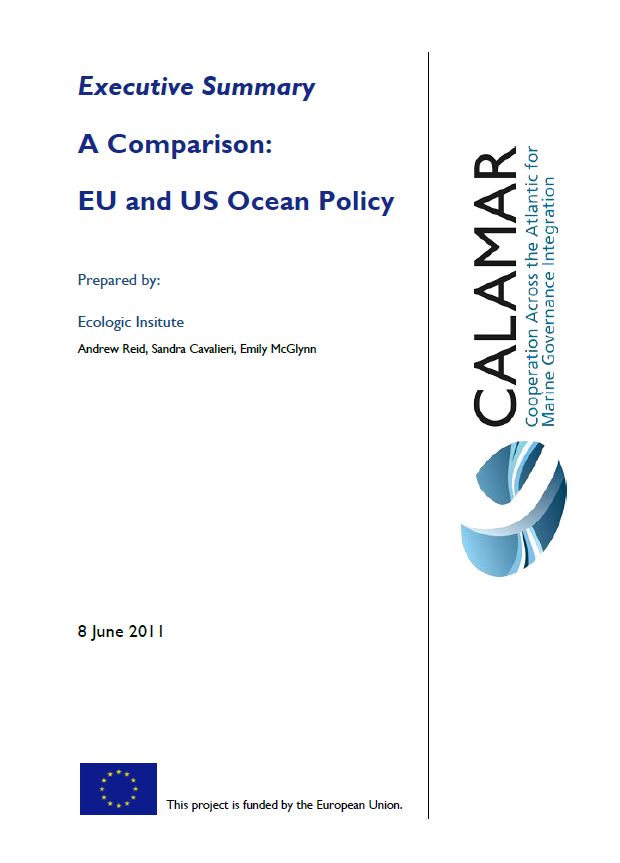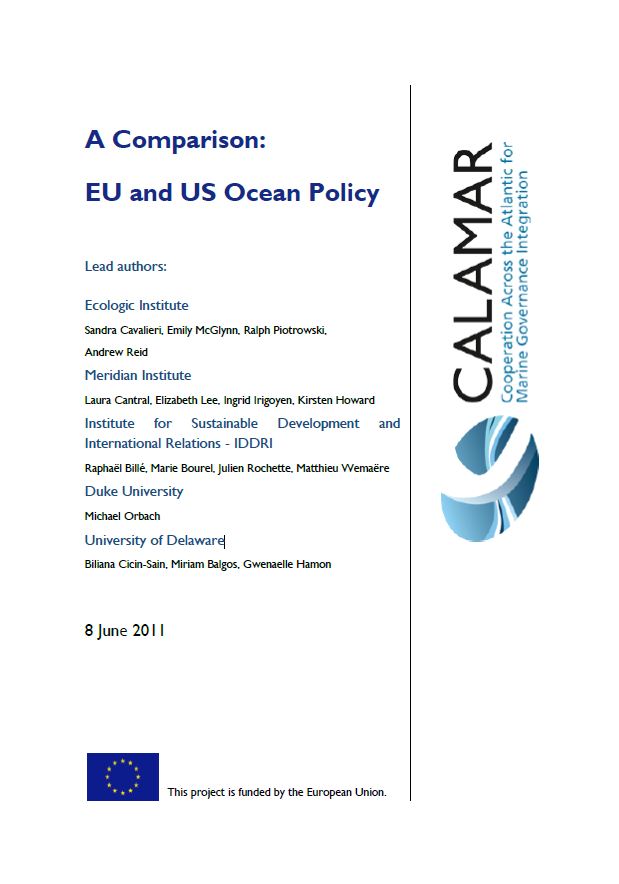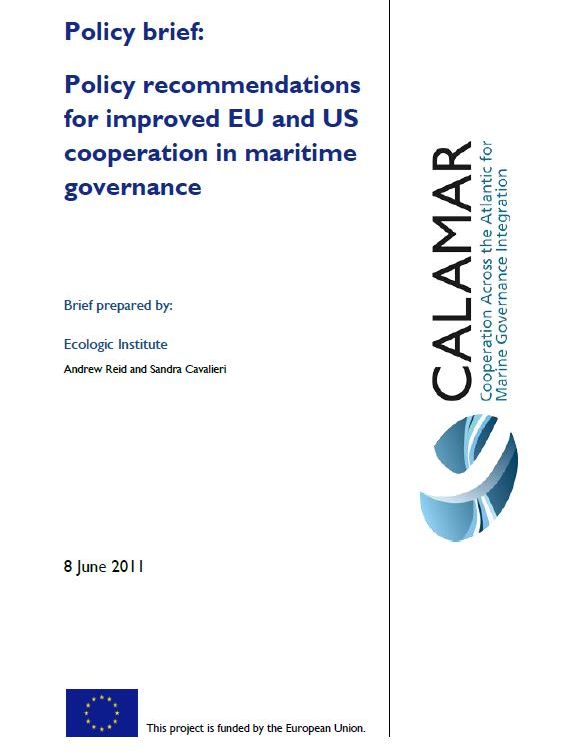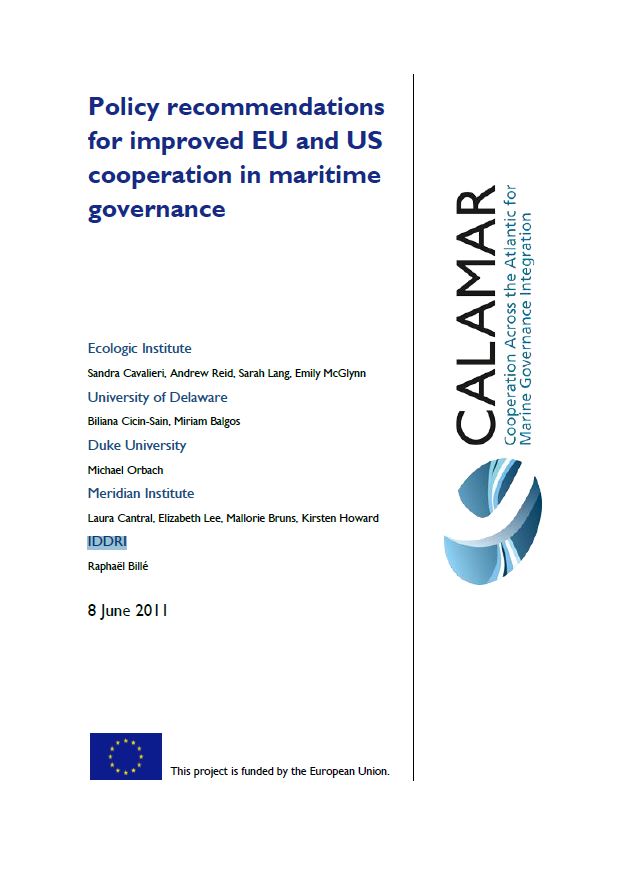As the impacts of climate change and global demand for marine resources have increased, the development of an integrated, holistic marine governance framework has become a key goal for both the EU and US. Recent policy events on both sides of the Atlantic provide a window of opportunity to significantly improve marine governance in national and international waters. To this end, the Ecologic Institute led a transatlantic project team that convened a multi-stakeholder dialogue allowing experts from the EU, US and other regions to develop best practices for integrated marine management.
The project objectives of CALAMAR are to:
- strengthen networks by building strong alliances among key stakeholders and
- contribute policy recommendations that incorporate stakeholder perspectives on the integration of marine policies and more effective transatlantic cooperation.
Experts contributed to the project through four multi-stakeholder working groups. Each group was led by one co-chair from the US and one co-chair from the EU, with membership of 10-15 individuals from industry, nongovernmental organisations, government, academia, and other ocean user groups from both sides of the Atlantic.
The working groups each focused on one of the following topics:
Integrated marine policies and tools
Integrated approaches are recognized by decision makers in both the EU and the US as the right way to effectively manage the wide variety of ocean uses. However, applying integrated tools in practice is often easier said than done. This working group shared experiences with marine spatial planning and identified next steps for how integrated approaches can be best put into practice.
EU/US cooperation in the North Atlantic
Despite numerous important issues related to ocean resource management that could benefit from cooperation between the EU and the US, relatively few have resulted in direct cooperation. This working group identified opportunities for transatlantic cooperation related to areas of ocean resource management. Several key issues were addressed by the group, including best practices for environmentally sustainable practices and technology in shipping, fisheries, energy development; information sharing and standards for monitoring, control, and surveillance and opportunities for bilateral cooperation to strengthen their influence in international organizations.
Oceans and climate change
The interplay between ocean and atmosphere means that the effects of climate change on our seas in the form of temperature increase, ocean acidification, rising sea levels, increased storm intensity, and changes in local and global circulation patterns will become more pronounced in the coming decades. It is important that adequate strategies be developed now to address these impacts. This working group explored possible synergies and tradeoffs between marine and climate policies, exchanged best practices, and identified issues and concrete steps for transatlantic cooperation.
High seas
The protection and sustainable use of high seas resources is a pressing global issue. The US/EU positions on the subject are neither clear nor precise. Therefore, cooperation between the US and EU is needed to explore solutions as well as opportunities for common positions on key issues. One example of a key focus area is governance of biodiversity on the high seas at international fora such as UNICPOLOS or relevant UN Working Groups. This working group identified opportunities for common EU and US approaches and possible collaborative efforts related to balancing economic activity and environmental protection in the high seas.
During the course of the project, two stakeholder-based workshops were held in Washington D.C. and in Paris. A final conference took place in Lisbon, Portugal to present the policy options resulting from the dialogue.











